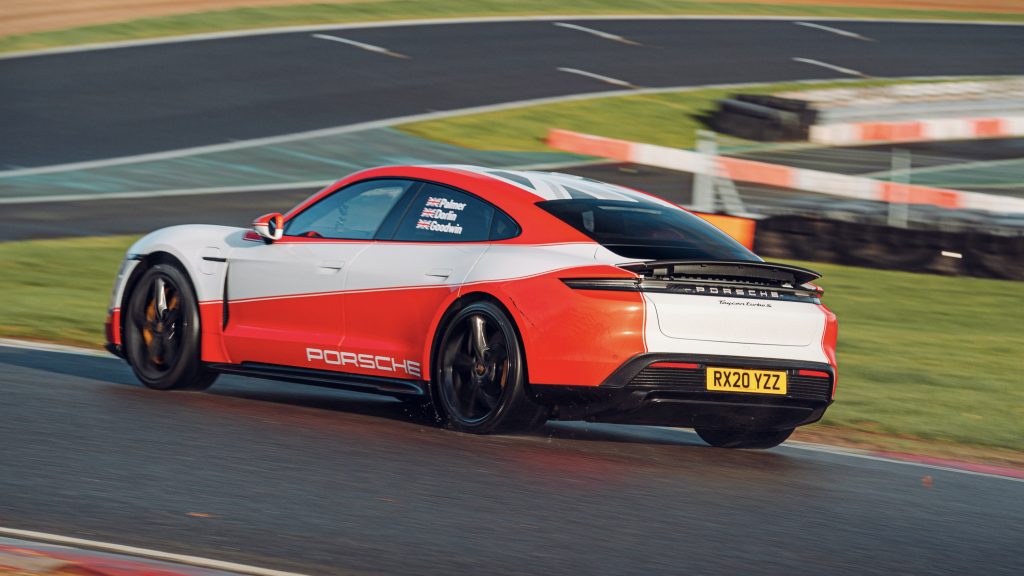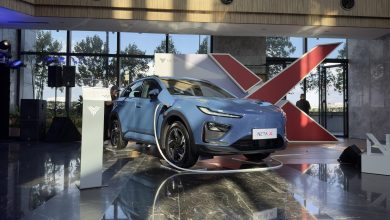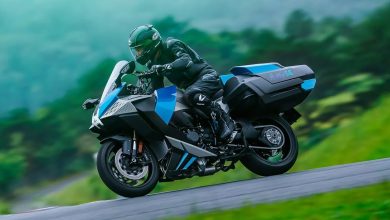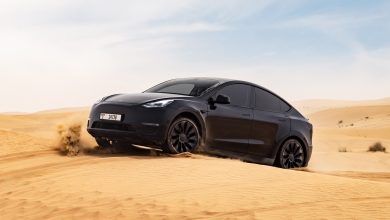Porsche Taycan Sets 13 New EV Endurance Records
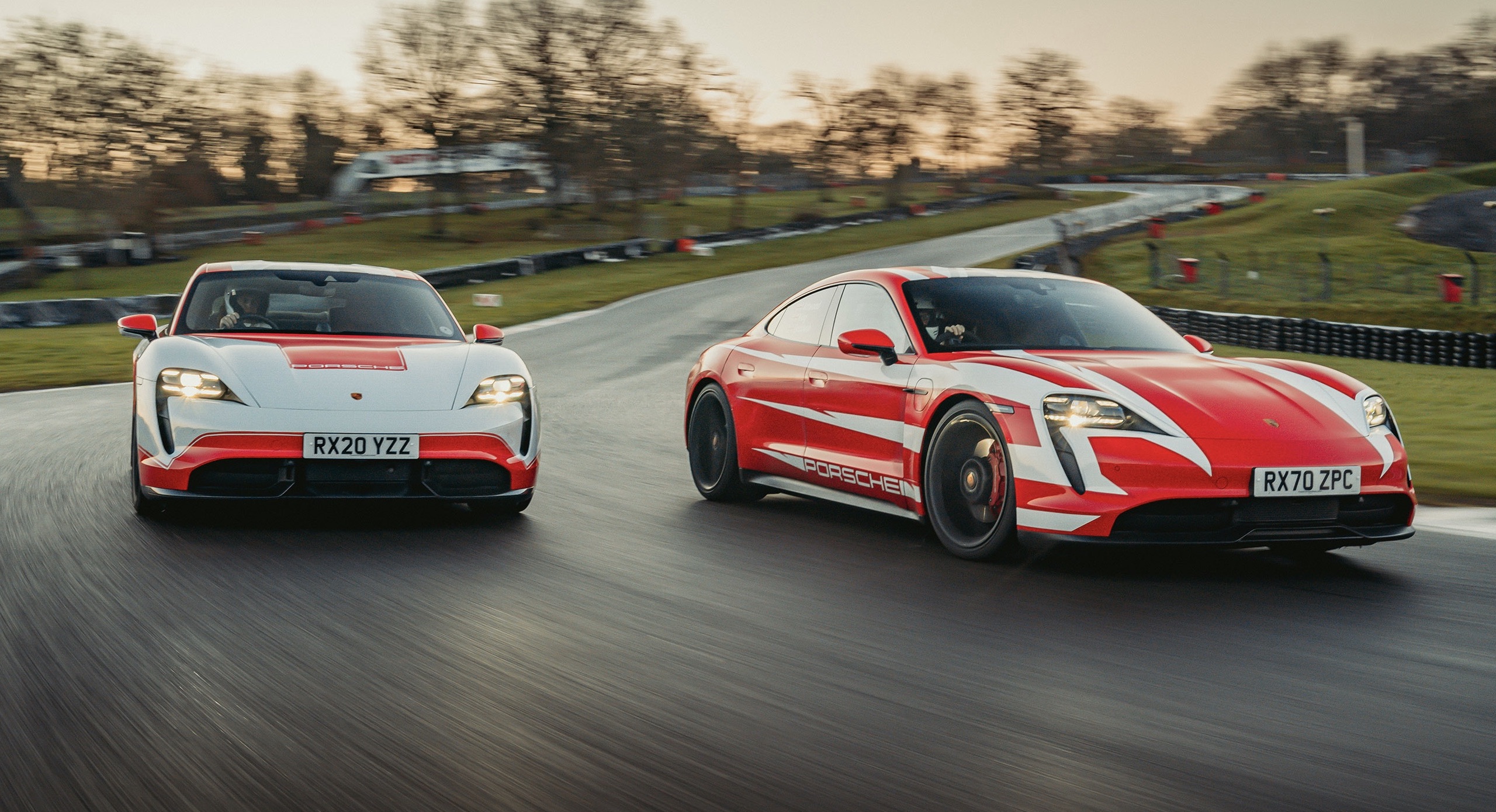
The Porsche Taycan has added yet another bakers dozen of records to its name.
Typically when the topic of EVs come up, speed is usually what is hyped up regarding these zero tailpipe emission vehicles. Endurance however, is not something usually associated with EVs. This is especially true when considering all the range and charging issues that are inherent with battery electric vehicles.
Well, Autocar and Porsche of Great Britain have recently sought to change this misconception. To that end then, they have decided to set the 1000 km endurance record for an EV with the new Taycan, and on the way broke 12 other records endurance records too.
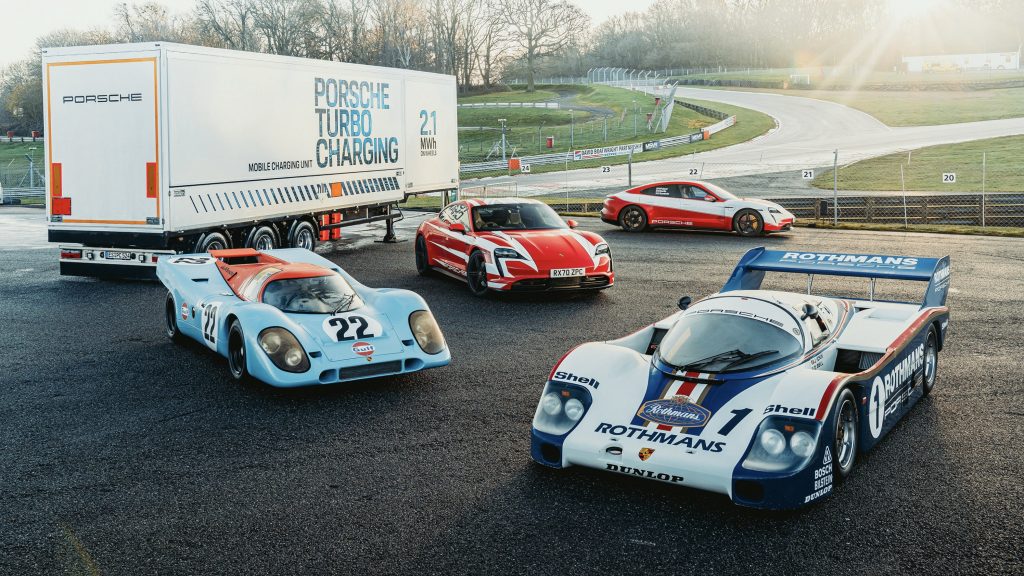
During this record run however, only 13 hours of track time open to them between 7.00 am and 8.00 pm. To add to that too, the weather at Brands Hatch on the day of the record attempt was typically British (read: wet and miserable), which therefore made for damp and slippery conditions when the drivers were out there clocking in the 515 laps needed to complete the 1,000 km goal set.
Nevertheless, a pair of production, street-legal Taycans, with some very renowned drivers behind the wheel, managed the nab 13 endurance records in the category of electric cars over 1,000 kg. Each of which was ratified by Motorsport UK, the UK’s motorsport governing body.
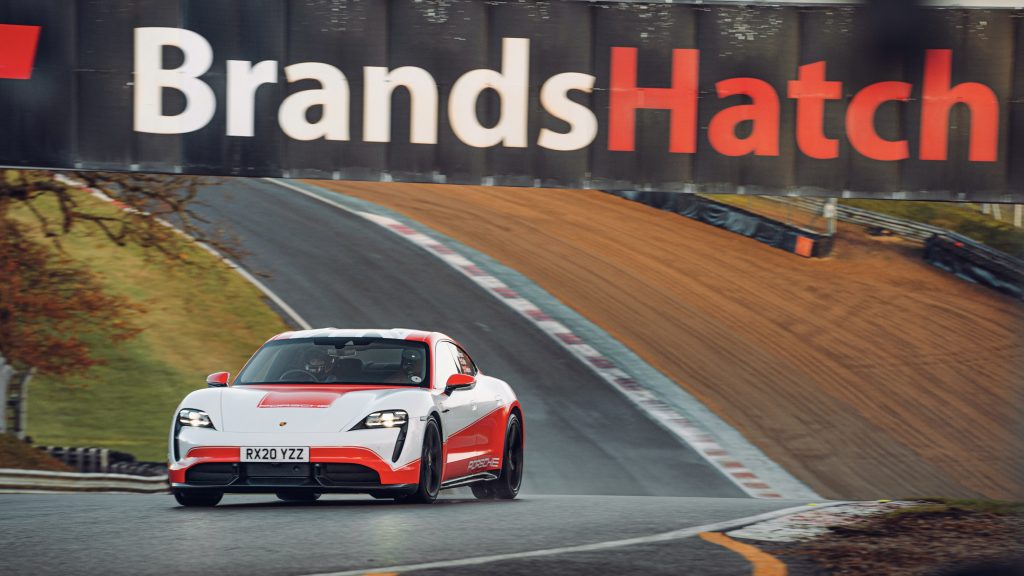
Speaking more about the cars and drivers in question, it was the Taycan 4S that snagged the main 1,000 km endurance record. Sporting a specifically designed Salzburg livery, the 4S also managed to clinch the records for the time taken from a standing start to cover 50 km, 50 miles, 100 km, 500 km, 500 miles, as well as the record for distance covered from a standing start in one hour (98.192 km) with Porsche GB’s Senior Press Officer Rob Durrant, 2020 Porsche Carrera Cup GB champion Harry King and Le Mans legend Richard Attwood behind the wheel.
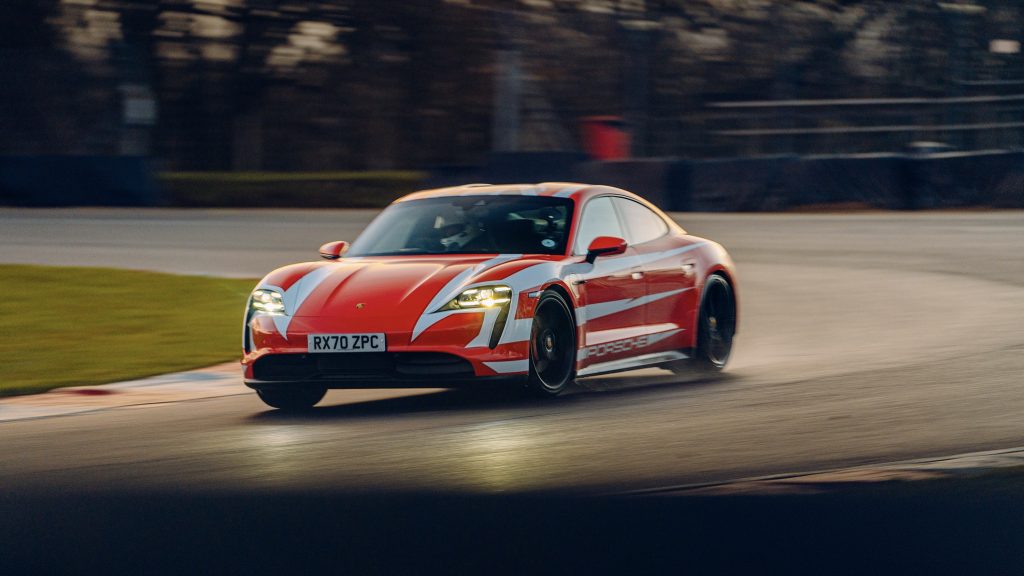
The other Taycan meanwhile was a Turbo S model. Liveried to resemble the Porsche’s 1984 Brands Hatch Endurance race winner and piloted by Autocar’s Colin Goodwin, 2020 Cayman Islands Porsche Sprint Challenge GB champion James Dorlin and Porsche racer Jonathan Palmer, this Turbo S took home the records for time taken from a standing start to cover 200 km, 100 miles and 200 miles, not to mention the records for distance covered from a standing start in three hours (252.356 km), six hours (450.065 km) and 12 hours (915.762 km).
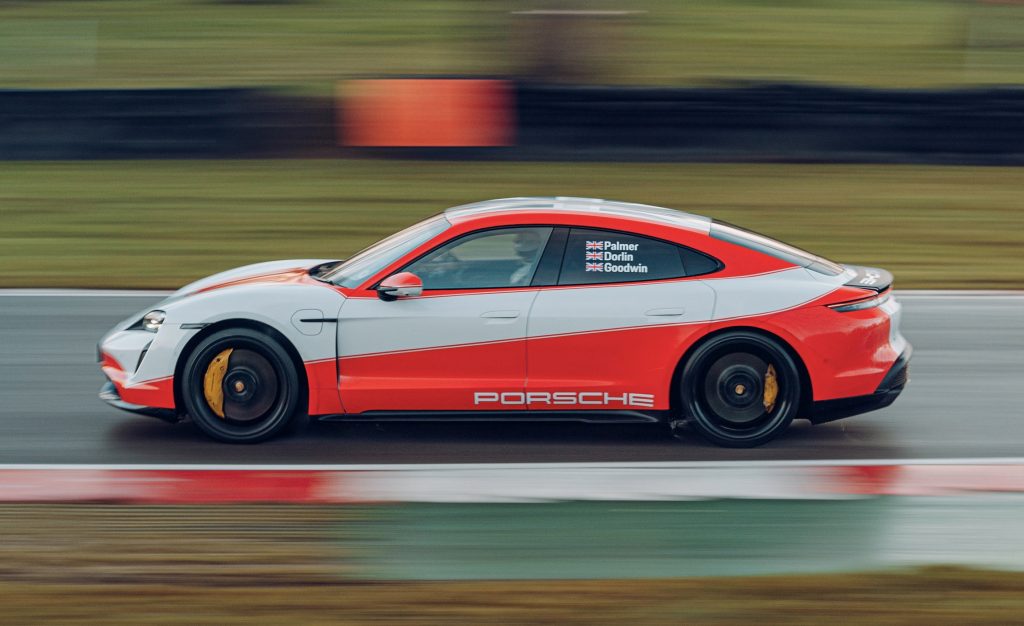
While there are some out there who may think of this record(s)-breaking exercise as just driving two Taycans flat out on a circuit, it is not technically the case as endurance challenges like this one requires a perfect balance of speed and efficiency. This therefore meant that drivers both cars have to adhere to a strict time delta throughout the record breaking attempt, with the Taycan 4S and Turbo S averaging a lap time of 1.09 and the 1.11 respectively around the track.
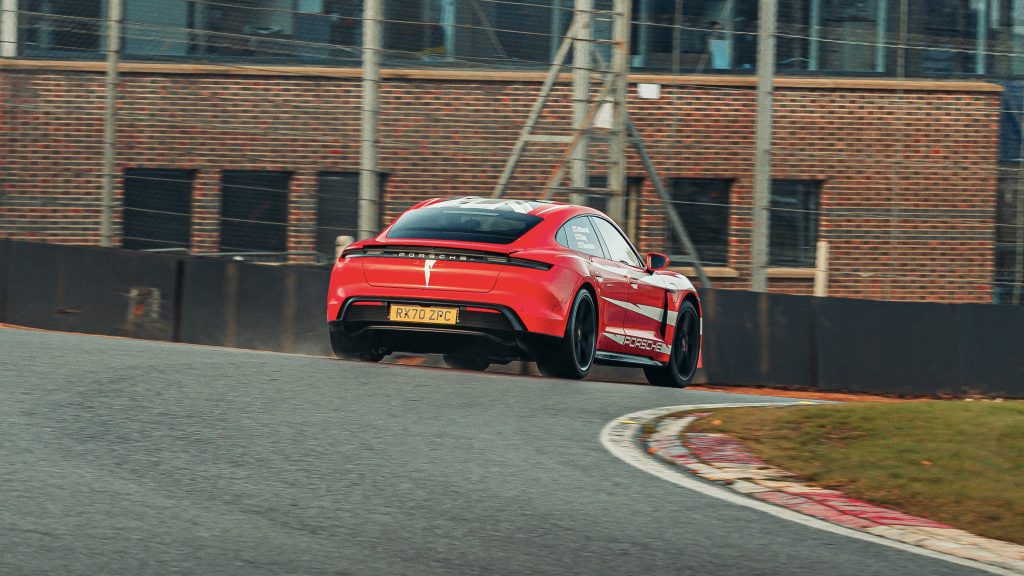
Additionally, setting these records with an EV too has its own unique challenges. The most major of which is that it required the driver’s to adjust their driving styles, especially for some of the older drivers who were driving an electric car for the first time. Brake regeneration for instance played a key role to bump up the efficiency target in order to break these records. Porsche also has brought along its 2.1 MWh rapid-charging trailer, just to help speed up the charging process of these Taycans.
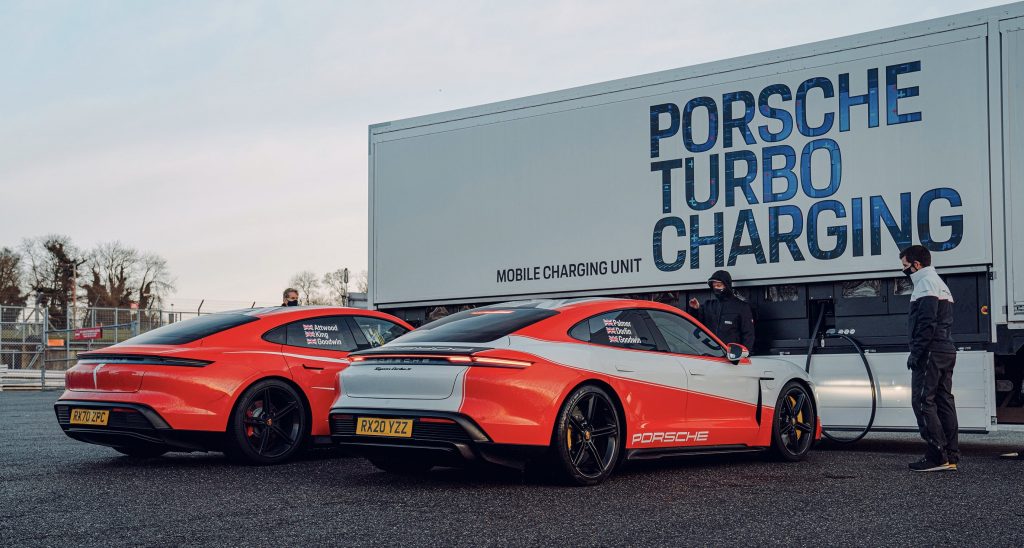
With these baker dozen of records in hand, the Taycan’s record cabinet looks to be rather large. That is because this first all-electric Porsche also Nurburgring lap record for a four-door EV production car (7:42.34), as well as the record for the longest EV drift (55 minutes).
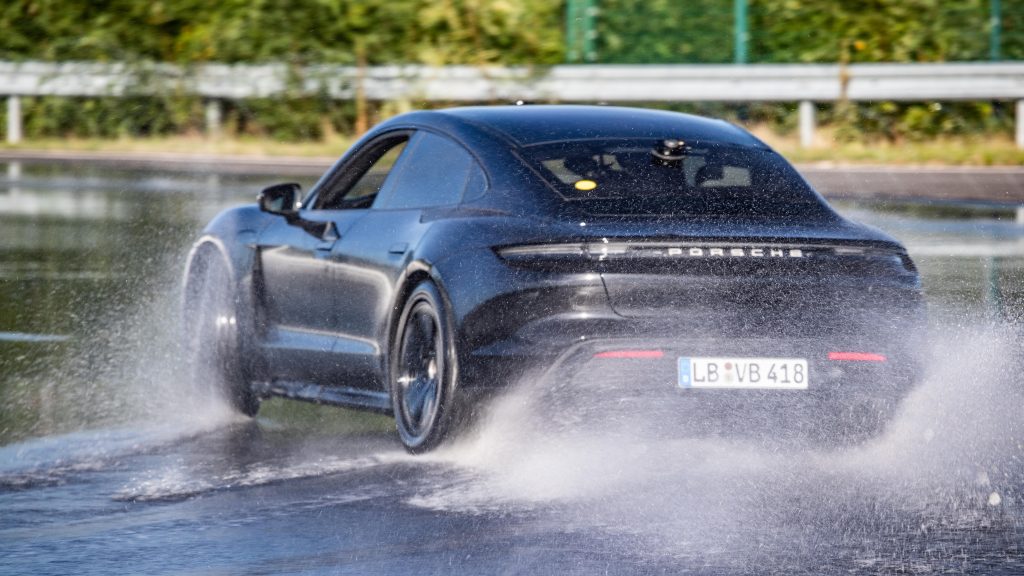
A more detailed run through of what was it was like during the record-breaking day can be found in the video by Autocar below. Also below is the press release from Porsche for those who prefer to read further about how the Taycan achieved this multi-record breaking feat.
PRESS RELEASE: Brands Hatch is no stranger to historic feats of endurance from Porsche. In April 1970, a 917 in the hands of Pedro Rodriguez and Leo Kinnunen won the rain-soaked 1,000-kilometre race by an incredible five laps. And in July 1984, Porsche claimed the top six places at the same event, with victory going to the 956 of Jan Lammers and Jonathan Palmer.
During another 1,000 km run around the UK’s famous Indy circuit in December, two Taycan cars racked up a remarkable 13 separate records, each one ratified by Motorsport UK. In the hot seat of the standard and road legal Taycan 4S and a Turbo S for this marathon effort were drivers including Le Mans legend Richard Attwood, ex Formula One and Porsche racer Jonathan Palmer, 2020 Porsche Carrera Cup GB champion Harry King and 2020 Cayman Islands Porsche Sprint Challenge GB champion James Dorlin.
The record runs got underway at 07:00 and were completed at 20:00, meaning that many hours were spent lapping Brands Hatch in complete darkness. In a parallel with the 1970 race, intermittent rain and heavy showers ensured the track surface was always damp at best, but the stellar line-up of experienced drivers, each of whom completed two or three stints of around 90 minutes, proved up to the challenge.
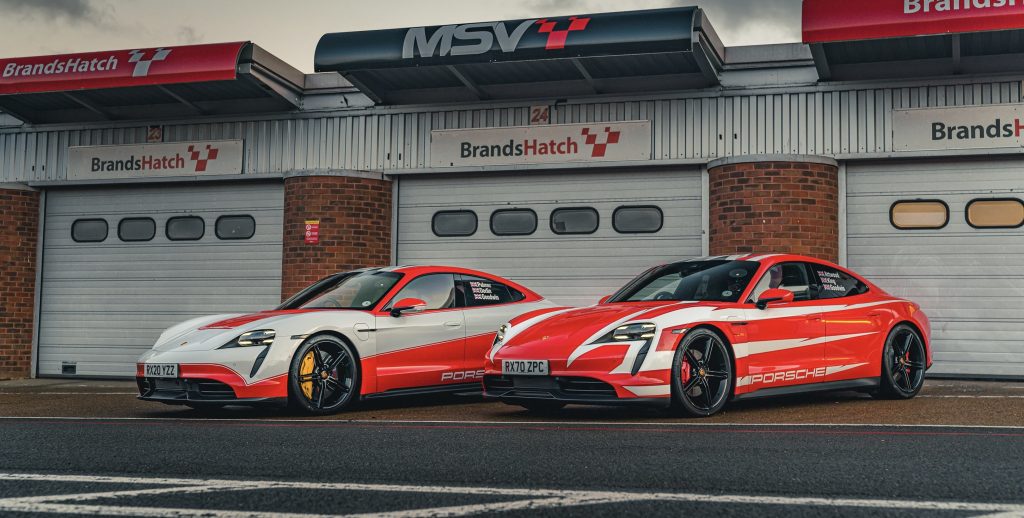
The records began to tumble quickly. In the category of ‘electric cars over 1000 kilograms’, the Taycan 4S took records for the time taken from a standing start to cover 50 km, 50 miles, 100 km, 500 km, 500 miles and 1000 km plus the record for distance covered from a standing start in one hour at 98.192 km.
At the same time and in the same category, the Turbo S claimed the records for time taken from a standing start to cover 200 km, 100 miles and 200 miles plus the records for distance covered from a standing start in three hours (252.356 km), six hours (450.065 km) and 12 hours (915.762 km).
Some 50 years after a podium finish at the Brands Hatch 1,000 km in the 917, Attwood had returned to the circuit to join the driver line-up in a Taycan 4S sporting a specially-designed Salzburg tribute livery. And 36 years after his famous win, Palmer found himself aboard a Taycan Turbo S finished in a livery harking back to his own 1984 car.
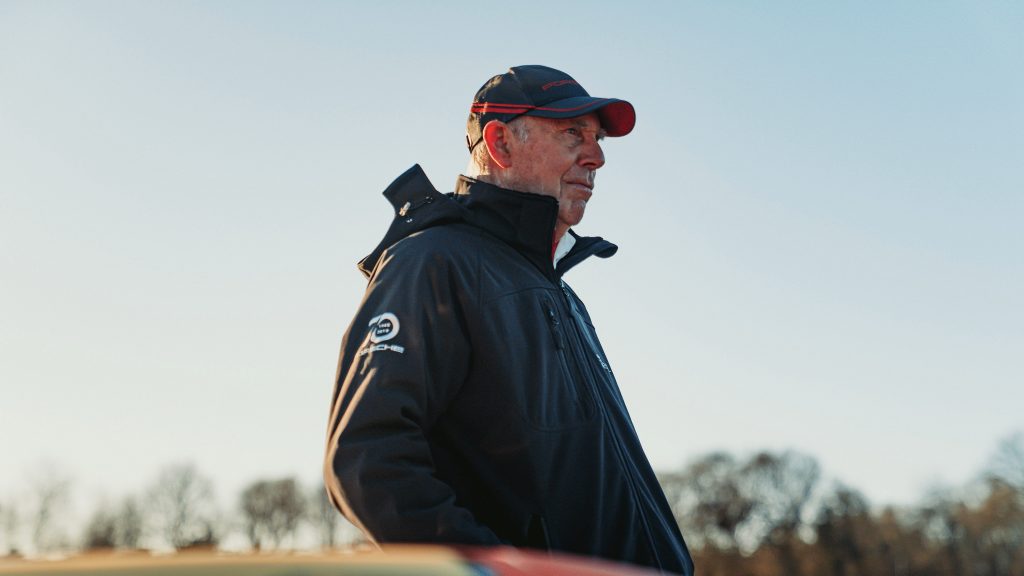
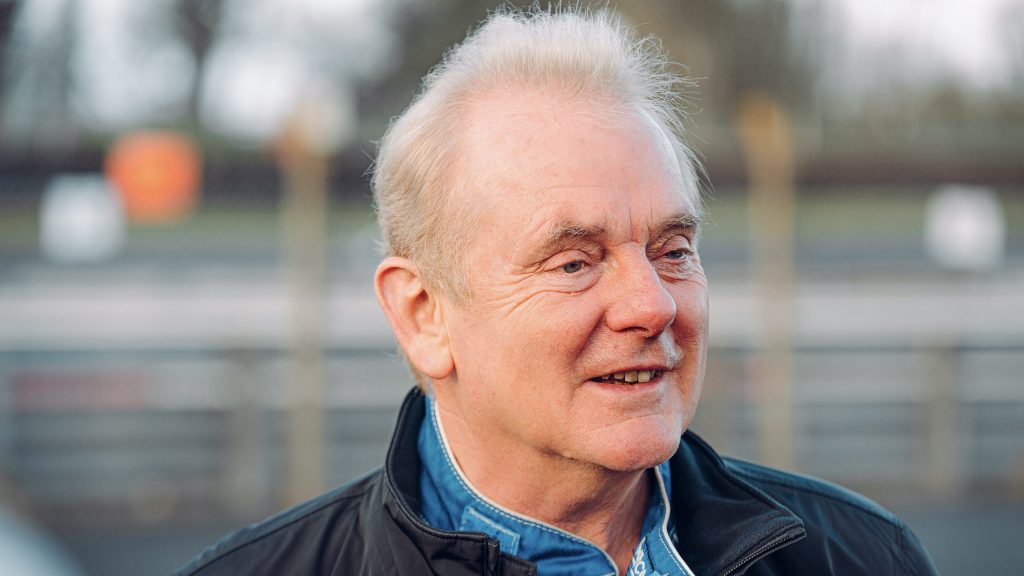
The slippery conditions and the need for efficiency required the drivers to maximise cornering speed to reduce energy wasted under heavy acceleration and braking. Both Attwood and Palmer were used to this kind of energy management from their endurance racing career, and were able to pass on their expertise to the next generation in King and Dorlin. By the final laps, both cars were achieving around a five per cent saving in energy per lap purely through an evolved driving technique.
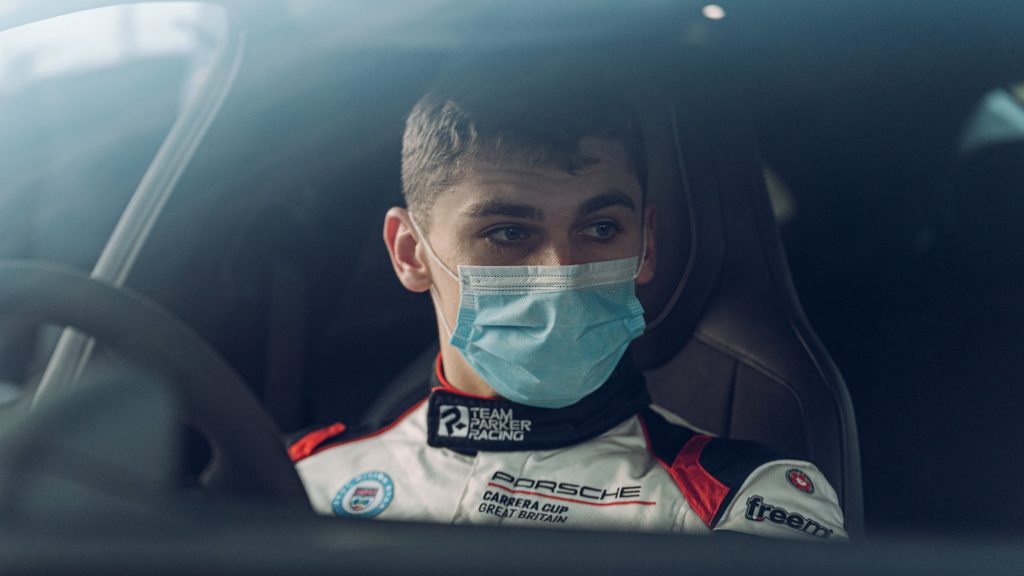
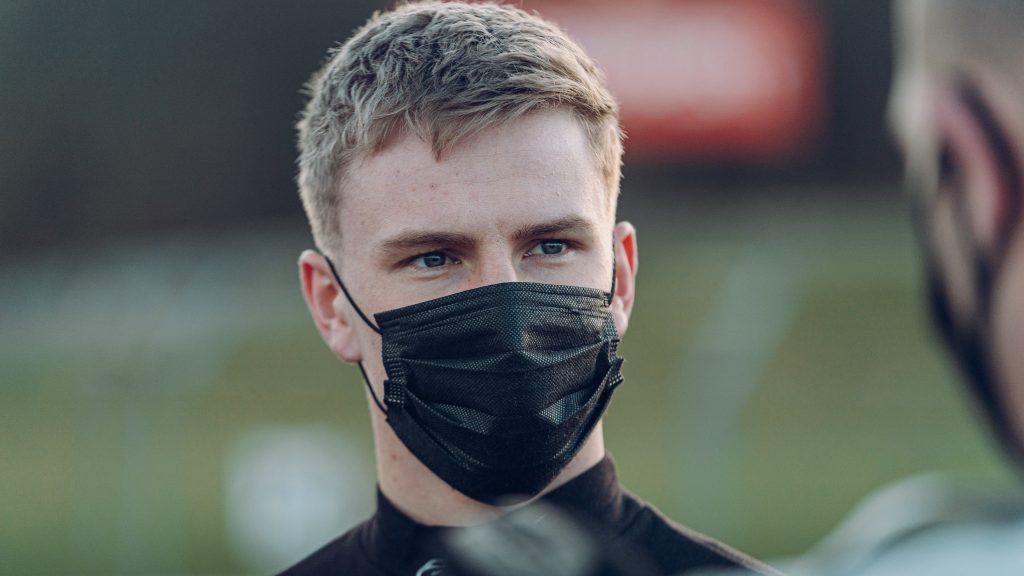
As a showcase for the abilities of the Taycan, the event could hardly have been more demanding, especially given the strict regulations that were in place to ensure social distancing rules could be followed. But the Taycan’s 800v architecture enables consistently high performance, decreases weight and reduces charging time. A maximum charging rate of 270 kWh also allows the 93.4 kWh Performance Battery Plus to be charged from five to 80 per cent in just 22.5 minutes under ideal conditions – crucial for such a record attempt.
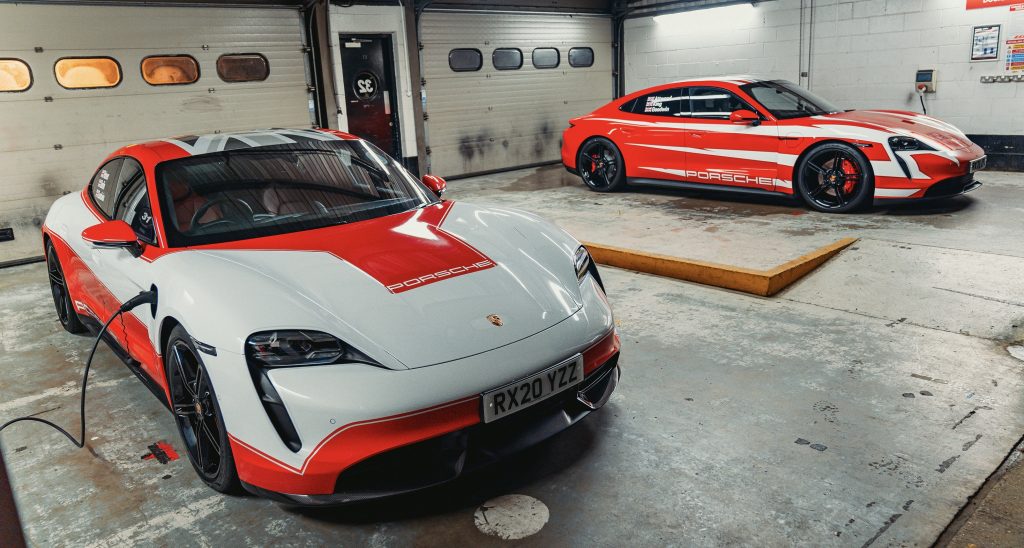
The Taycan’s sophisticated thermal management proved to be another significant asset when it came to recharging. The highly efficient, intelligent system used to cool and heat the high-voltage components prevents potential power losses due to excessive heat and optimises the temperature for charging. Despite an ambient temperature of just eight degrees Celsius at Brands Hatch, and the heat generated by constant high-speed driving, the battery temperature was always within the desired range.
Over the course of the 1,000 km record run, the Taycan 4S spent a total of three hours and three seconds entering or exiting the charging area and charging, which was completed over six stops. On average, each stop lasted around 30 minutes, the cars charging from around five percent to 85 per cent each time.
